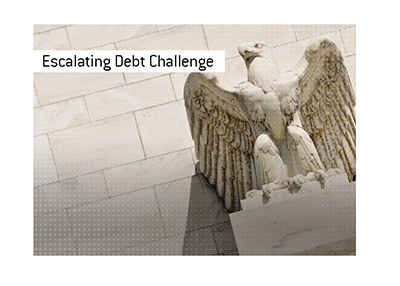Is the Credit Card Industry Next to Feel the Pinch?
 A few years ago, there were plenty of easy ways to raise money to support your lifestyle, especially if you were a homeowner.
A few years ago, there were plenty of easy ways to raise money to support your lifestyle, especially if you were a homeowner.You could buy a house and then flip it a year later for a nice big profit.
Or, if you were like many people, you simply took advantage of the increasing equity in your home and took out a home equity loan. Many people took out home equity loans to support a lifestyle that they couldn't really afford. When they ran out of money, guess what? Their home had appreciated in value and they could just take out more money.
The problem that many of these people are facing right now is that their homes are no longer appreciating in value - matter of fact, they are dropping in value. For many people who have borrowed against every penny that they have in equity in their home, this is a big problem. They can't borrow more money because: a) they don't have any equity left in the home to borrow against and b) lenders have much tighter lending requirements due to the collapse of the subprime credit market. These people can't sell their homes, because if they do they will have to immediately pay back the balance on their home equity loans. For many people, the balance on their mortgage + their balance on their home equity loan is greater than the total equity of the home. So if they sell, they have to actually pay money to the home equity firm, plus probably pay a penalty for paying back the loan early. Most people in this situation simply do not have the cash on hand to afford this, so they are basically stuck, hoping for an upturn in the real estate market.
For many people stuck in this situation, they are now turning to credit cards in order to finance their lifestyles, with some even using credit cards to pay their mortgage payments. You would be amazed at just how many people operate in the negative on a monthly basis, expenses out-pacing income, and look to make up the balance with their credit card. In Q3 2007, credit-card balances in the US increased by 7% on an annualized basis. To put this in perspective; the annual average rate of increase from the previous six years prior to that was 2. So clearly people are looking to their credit cards to finance their lifestyles, now that home equity loans have dried up.
Delinquency rates and charge-offs (debt that has been written-off) have been increased notably from 2006. With the US economy likely sinking into a recession and unemployment figures starting to spike, one can extrapolate that delinquency rates and charge-offs will continue to rise as more and more people rely on their credit cards.
This is obviously a problem for credit card companies. Due to a suffering business, their first step will be to tighten their lending standards, which will obviously hurt their business. The very people that they will no longer want as customers are the people who have no problem paying sky-high interest rates. By nature, people with higher credit scores will be more diligent in paying their credit card bills off in a timely fashion, avoiding the high interest rates. Credit card companies will offer lower credit lines to people and look to shun people who are high-risk, due to not wanting to incur too many "charge-offs."
So you get the double whammy off increasing amounts of money that they won't be able to collect on, and less customers due to tightened lending standards. Mortgage companies such as Countrywide Financial suffered terribly in 2007 as their business went down the toilet; are credit card companies next in 2008?
Filed under: The Economic Meltdown | General Market News | General Knowledge



